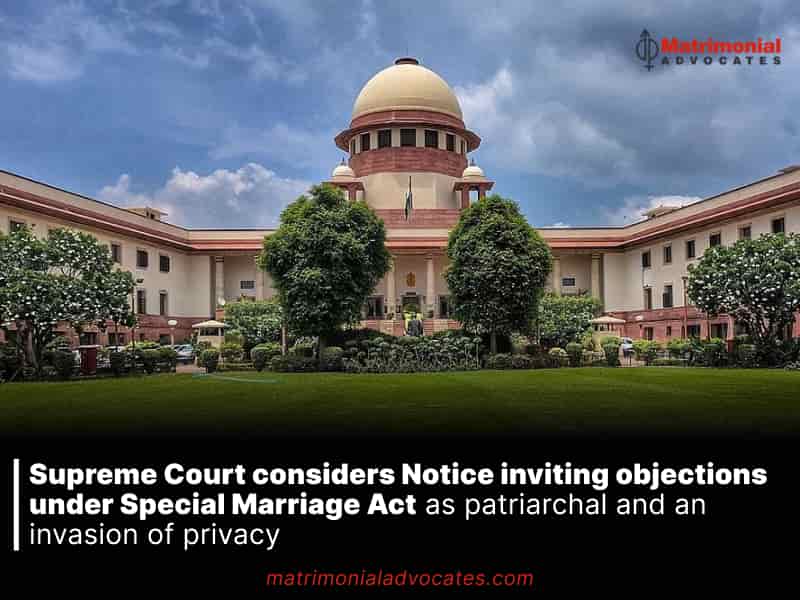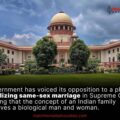
Interestingly, the Supreme Court had refused to entertain a PIL challenging the provisions of the Special Marriage Act requiring publication of couples’ details 30 days before the intended marriage in public domain.
The Supreme Court, led by Chief Justice of India DY Chandrachud, along with Justices Sanjay Kishan Kaul, S Ravindra Bhat, PS Narasimha, and Hima Kohli, stated that laws like the Special Marriage Act were created during a time when women lacked agency, and that the requirement for public notice inviting objections to an intended marriage is patriarchal and violates privacy. These observations were made during the hearing of petitions seeking legal recognition of same-sex marriage. The Constitution Bench specifically discussed Sections 5, 6, and 7 of the Special Marriage Act, which mandate marriage officers to display a public notice with personal details of the couple, including names, phone numbers, date of birth, age, occupation, and addresses, for 30 days prior to the marriage. Senior Advocate Abhishek Manu Singhvi, representing the petitioners, argued that such provisions do not exist in personal laws of various religions and that the 30-day notice period directly infringes on the fundamental rights of the petitioners.
Singhvi emphasized that the requirement to declare one’s intention to marry to the public before formalizing the marriage is an invasion of privacy and violates personal autonomy. He further described it as a remnant of the colonial era. Justice Bhat expressed the opinion that such laws are rooted in patriarchy and were formulated at a time when women did not have agency. The Chief Justice of India added that this requirement exposes the couple to potential invasion by various societal figures, including the Superintendent of Police and the District Magistrate.
“There is a very real likelihood that this section will disproportionately impact if one member is from a marginalized or minority community and this it impacts one of the most vulnerable sections of our society. Regarding the protocol we have to be careful that we dont empower these officers to possess personal and private information of these individuals but we have to see that they are protected, yes.“
The hearing is currently ongoing.
Notably, in August 2022, the Supreme Court declined to entertain a Public Interest Litigation (PIL) that challenged the provisions of the Special Marriage Act mandating the publication of couples’ details in the public domain 30 days prior to their intended marriage.
Earlier this year, the Kerala High Court expressed the opinion that the legislature should reconsider the necessity of such provisions in the modern era.
In a similar vein, the Delhi High Court had previously observed that when two consenting adults decide to live together as a married couple, no one, including their family members, has the right to interfere.
Source: https://www.barandbe nch.com/news/litigation/notice-inviting-objections-under-special-marriage-act-patriarchal-enables-invasion-of-privacy-by-authorities-supreme-court





